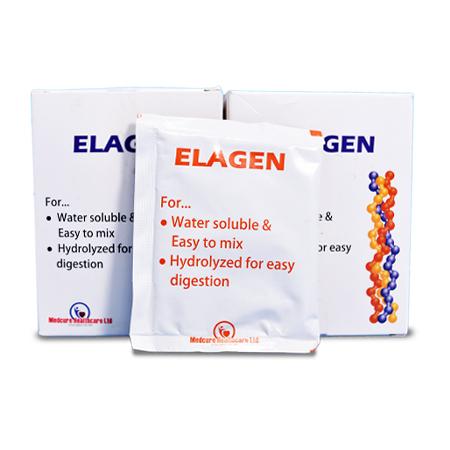
WATCH FULL VIDEO ON YOUTUBE
Meta Description:
Discover the factors behind muscle loss (sarcopenia) and learn how to prevent it with nutrition, exercise, and lifestyle changes. Get expert tips and advice to keep your muscles strong and healthy.
Table of Contents
Introduction:
In this comprehensive guide, we’ll delve into the world of muscle loss, also known as sarcopenia. We’ll explore the various factors that contribute to loss of muscle mass, its effects on the body, and most importantly, how you can prevent and manage it to maintain strong, healthy muscles.
Derived from the Greek root words sarx (flesh) and penia (loss), sarcopenia is defined as a decline in muscle mass, strength, and function. It is often associated with older adults, but some forms of sarcopenia can also affect middle-aged people.
Understanding Muscle Loss:
Muscle mass loss, or sarcopenia, is the gradual loss of muscle mass and strength that occurs with aging.Typically, muscle mass and strength increase steadily from birth and reach their peak at around 30 to 35 years of age. After that, muscle power and performance decline slowly and linearly at first, and then faster after age 65 for women and 70 for men.
Those findings come from NIA’s Baltimore Longitudinal Study of Aging (BLSA) — the longest-running study of human aging — which pioneered a series of simple tests decades ago, known as the Short Physical Performance Battery (SPPB), to track mobility and muscle performance.
While some muscle mass loss is natural as we age, certain factors can accelerate this process, leading to functional limitations and decreased quality of life.
Factors Contributing to Muscle Loss

Poor Nutrition
A diet lacking in protein, vitamins, and minerals can hinder muscle growth and repair, leading to muscle mass loss over time.
Stress
Chronic stress can lead to an increase in cortisol levels, which can break down muscle tissue and inhibit muscle growth.
Sedentary lifestyle
Lack of physical activity can lead to muscle atrophy and weakness, as muscles need regular stimulation to stay strong.
Sleep Deprivation
Inadequate sleep can impair muscle recovery and growth, leading to muscle mass loss over time.

Effects of Muscle Loss
The effects of muscle mass loss can be far-reaching, impacting your strength, mobility, and overall health. Muscle loss can increase the risk of falls and fractures, reduce your ability to perform daily tasks, and contribute to a decline in overall quality of life.
Prevention and Management
Fortunately, there are steps you can take to prevent and manage muscle loss:
Proper Nutrition
Proper nutrition is essential for supporting muscle health. Focus on a balanced diet rich in protein, vitamins, and minerals.Include foods like lean meats, fish, eggs, dairy products, legumes, nuts, and seeds in your diet. These foods provide the building blocks necessary for muscle growth and repair.
Healthy lifestyle modifications
Making healthy lifestyle choices can also help manage sarcopenia. Get enough:
sleep, manage stress, and avoid excessive alcohol consumption.
These lifestyle modifications can help optimize muscle health and overall well-being.
Regular Exercise
Engage in regular strength training exercises to maintain muscle mass and strength.
Strength training exercises
One of the most effective ways to combat sarcopenia is through regular strength training exercises. These exercises help build and maintain muscle mass. Some examples of strength training exercises are:
- Bodyweight Exercises: – Push-ups, pull ups and squats.
- Free Weight Exercises: – Dumbbell Lunges, bicep curls, and tricep extensions.
- Machine Exercises:- Leg Press, chest press machine and lat pulldown machine
- Resistance Band Exercises: – Band Pull-Aparts, band squats and band rows
- Functional Exercises: – Deadlifts,planks, and russian twists
When performing strength training exercises, it’s important to use proper form, start with lighter weights, and gradually increase the resistance as you build strength.
It’s also advisable to consult with a fitness professional before starting a new exercise program, especially if you have any underlying health conditions.
Progress tracking
Track your progress in managing sarcopenia to stay motivated and make adjustments to your routine as needed.
Keep a workout journal, measure your body composition, or use fitness apps to monitor your progress and make informed decisions about your health.
Supplementation
In cases where age is the cause, supplementation may be beneficial for managing sarcopenia. Talk to your healthcare provider about supplements like protein powders, creatine, and vitamin D.
La Dermique offers several products that can be beneficial for individuals managing sarcopenia. These products focus on skin health, anti-aging, and overall wellness, which are important aspects of managing sarcopenia. Here are some La Dermique products that can be profitable in addressing sarcopenia:

Collagen Supplements:
Collagen is essential for maintaining skin elasticity and strength, but it also plays a crucial role in supporting muscle health. La Dermique’s Elagen collagen supplements can help support overall musculoskeletal health, including the muscles

Vitamin D Supplements: Vitamin D deficiency has been linked to muscle weakness and sarcopenia. La Dermique’s cactus forte with vitamin D and other ingredients like glucosamine and chondroitin can help individuals maintain optimal vitamin D levels, which is important for muscle function and overall health. It can also help support joint function and mobility, which is important for maintaining an active lifestyle and managing sarcopenia.


